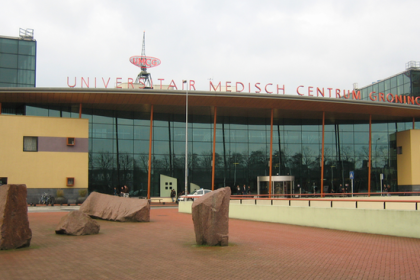Khaled Abou Zahr Following a long stalemate, the Lebanese file was in June passed on from French President Emmanuel Macron to former Foreign Minister Jean-Yves Le Drian. His current mission is still to help Lebanon elect a president. But is this the right mission for the countries that are looking to help Lebanon? Should there not be a more impactful way to help Lebanon once and for all?To start with, this mission reveals how much the confessional system is hurtful for Lebanon. Indeed, the election or selection of any of the three key roles of the state — president, prime minister and parliament speaker — never seem to be related to all the people’s affairs, but rather limited to each concerned community.Let me explain. Currently, with each position being reserved for a single community, the election by the parliament of a new president is, for example, viewed through the lens of the Christian/Maronite community. Just like the continued failure to name a prime minister is seen through the lens of the Sunni community. And the speaker of parliament, which is the only one of these positions that is currently filled, indicating where the power in the country lies, seems to be a Shiite affair. In all logic, this raises the question of an absence of a Druze head of state. What about the aspirations and fears of this community, which has given its blood and made sacrifices? Unfortunately, in today’s Lebanon, the Druze would probably only have an “acting representative” or another empty seat.There is hence no country, just confessional minorities. I understand why some Maronites have fear because Michel Aoun was their last president. This fear can be applied to Sunnis and the prime minister. We can clearly see now how this system does not work and how it invites shady deal-making at the expense of the people, thanks to the exploitation of this exact fear. Any centralized system, such as a direct presidential election regardless of confession, would make these fears explode into potential civil war.This is exactly why a system that has a centralized head of state for each community does not work. A federal system would solve many of these issues. But it would not be a magic wand. There are examples of federal systems that are dysfunctional. The clearest example that comes to mind is Belgium. It is a European federal constitutional monarchy in which the king is the head of state and the prime minister is the head of government in a multiparty system. Decision-making powers are not centralized but divided between three levels of government: the federal government, three language-based communities (Flemish, French and German-speaking) and three regions (Flanders, Brussels-Capital and Wallonia).Unfortunately, Belgium has become known for its political instability. In 2020, it finally formed a government after 652 days of caretaker and minority governments, following the collapse of the previous administration in December 2018 due to interparty tensions over migration. So, it is not only Lebanon that suffers from this disease. This marked a new record for Belgium’s longest post-election period without a government, surpassing the previous record of 541 days after the June 2010 elections, which ended with the swearing-in of Elio Di Rupo as prime minister after a similarly complex negotiation period.The advantage is that, while there were problems at the federal level, people’s lives were unaffected because what mattered to them was decided at the local level. Unfortunately, and here lies the risk, we are noticing today a growing demand for Flemish independence ahead of federal elections next year. Questions over migration and general policies are pushing this demand.This is why I once again use the example of Switzerland as a model for Lebanon, with its federal council when it comes to state-linked affairs. This is the best example Lebanon should follow. The Swiss Federal Council is Switzerland’s highest executive authority and serves as the collective head of state and government. This council has seven members, each representing a different political party, and it works on a consensus-based decision-making system.By overseeing the administration, proposing legislation and representing Switzerland in international affairs, it plays a significant role in the country’s political landscape. The Federal Assembly, which is the country’s bicameral legislature, chooses the members of the Federal Council, who each serve for four years. For more than a century, this unique and balanced governance system has been a hallmark of Swiss political stability. It has helped Switzerland become known as a model of direct democracy and federalism.In Lebanon, adopting a similar system would be a positive power-sharing solution. It could pave the way for more effective governance. A federal council including all confessions would have representatives serving the country and not their respective communities. Moreover, a member of the Druze community could be added alongside the representatives of all the other communities.Just as Switzerland’s system ensures that the various linguistic, cultural and religious groups within the country are represented in the Federal Council, Lebanon could have a more inclusive government that reflects the nation’s multifaceted identity. This would strengthen the bonds between communities instead of pitting them against each other.There is no doubt that, despite the current political vacuum and the failure to nominate the heads of state, the Lebanese people are in a de facto decentralized system.They have their own solutions, from banking and cryptocurrencies to having generators for electricity. Therefore, countries looking to help Lebanon should support the transformation toward a new political system and not a temporary solution to keep an archaic one alive. This needs to be done before secession becomes the only solution.



